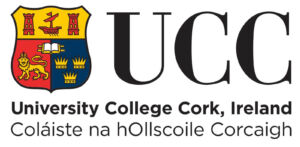MA in Theatrical and Performative Practices
Key Points
The Master of Theater and Performing Practices is designed to produce flexible and empowered theater artists who want to move the ship with innovative and cutting-edge work. It provides a challenging and supportive space for recent graduates and professionals who know that performance can change the world, as it can be entertaining. Students will learn to follow their instincts and explore their unique creativity, within a rigorous critical context and inquiry environment.
With a focus on experimentation, collaboration, and composition, this master’s degree offers a unique opportunity for students to develop their own voice in a dynamic interdisciplinary learning environment, based on practice and inquiry. It is launched at a key moment in the history of theater and stage practice in Ireland and around the world, with the Me Too movement, Waking the Feminists and the ongoing discussion and controversy over the culture and nature of performance, the cinema and theatrical work.
This master’s degree gives space to acting as an essential tool for social and political change. Graduates will emerge ready to revitalize the cultural life of Ireland, Europe and beyond.
All students take 35 core credits, 10 elective credits, and a 45-credit final project.
Program Structure
Course practices
The Master of Theater and Performing Practices is taught through a lively combination of studio training, critical seminars, internships, workshops with visiting theater artists, critics, and theorists, as well as participation with the department’s research and practice seminar: Perforum , and through a plural and multi-level commitment to festivals, events, installations and performances throughout the year. She bring her jersey and Lyotard, and a bottle of water.
Evaluation
Students of the Master of Theater and Performative Practices are evaluated through a combination of continuous evaluation of the contribution and achievement in the process, as well as the final performance, through critical reflections on the process / performance, as well as the critical writing on the theory, history and context of theater. and performative practices. Your choice of the final project dictates how they will be evaluated and weighted in various ways between creative practice and critical writing.
Why choose this course
The Master of Theater and Performative Practices at UCC offers students a unique opportunity to develop their individual and collaborative critical and creative theater practices, through and in combination with a lively internship and residency program.
Career opportunities
What can I do after I graduate with a master’s degree in theater and performing arts?
Upon graduation, you will be qualified and ready to work for multiple aspects of the creative industries, both those specifically related to theater and acting, as well as broader aspects of the cultural production, management, and creative industries. This master’s degree trains students in the skills of making and producing theater and performative events, in live collaboration and always in context. These are competencies that can be critically and dynamically transferred to the professional worlds of theater, dance and the cultural industries.
Occupations associated with the Master’s in Theater and Performative Practices
Our former students work in multiple aspects of contemporary theater, dance, and the cultural industries. These include creative cultural producers (theater production, dance production, festival production), art managers, art administrators, theater directors, choreographers, performers, playwrights, writers for television and film, community artists working in theater, dance and visual arts, as well as industries related to journalism, library management, teaching, and academia.
Admission requirements
Applications from graduates in Theater, Drama, and / or theater-related disciplines will be considered. Applicants will normally have a second-class honors grade II in a primary honors degree (NFQ, level 8) or higher, and must be able to demonstrate an established commitment to theater and / or performing practices. Applicants with significant theater and theater experience at the professional level will also be considered. Completion of the Higher Diploma in Theater and Performative Practices (Second Class Honors, Grade II or higher), also qualifies students to apply. Applicants will be asked to attend a workshop and / or interview with Theater Department staff. Screen arrangements can be made in the case of international student applications.
English requirements
All graduate applicants whose first language is not English must provide evidence of English language proficiency. Certain tests (eg, IELTS, TOEFL, and Pearson PTE) have a three-year time limit on their validity and will apply. English language tests must be taken no more than three years prior to the start of a program.
Please note that Secure English Language Test (SELT) scores must be obtained in a single session of the corresponding qualification (for example, IELTS and TOEFL). We will not accept a combination of individual component scores from multiple tests.
Applicants who are nationals of a country that, according to the UCC, is predominantly English-speaking, or who have a degree or equivalent qualification that was taught in a country that is considered predominantly English-speaking, will normally be assumed to have met the language requirements of the UCC. However, in some circumstances, applicants may be required to present evidence of an English language qualification to satisfy the college program entry requirements.
Request your quote
An advisor will contact you by phone and email within the following hours


